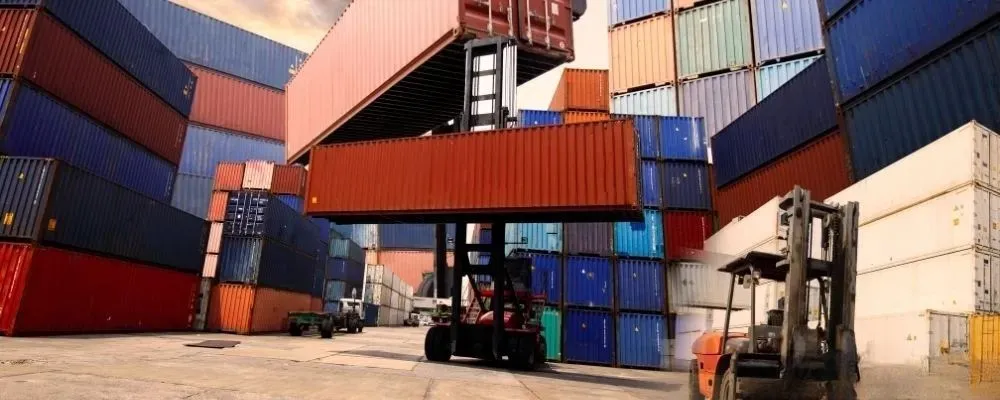The significance of health and safety cannot be overstated, as it plays a pivotal role in ensuring the well-being and security of individuals. Understanding why is health and safety important is crucial because it encompasses various aspects of our lives, from personal protection to the smooth functioning of organizations and communities. By recognizing the reasons behind the necessity for safety precautions, we can actively prioritize implementing measures that safeguard against potential risks and hazards. Whether in the workplace, at home, or in public spaces, comprehending why is health and safety important empowers us to make informed decisions and take proactive steps to mitigate dangers, fostering an environment of security and peace of mind for all.
Reasons Why is Health and Safety Important
7 Moral Reasons
- Respect for Human Life: Health and Safety is crucial as it shows respect for human life. Each individual’s life is important, and it is a moral duty to ensure that no one is harmed due to negligence or carelessness.
- Prevents Pain and Suffering: Ensuring health and safety minimizes the risk of injuries and accidents that could lead to physical pain and emotional suffering. It’s a moral obligation to prevent avoidable suffering.
- Promotes Well-being: Health and Safety is essential for well-being. A safe environment reduces stress and anxiety, promotes health, and increases life quality, aligning with moral imperatives to promote well-being.
- Ethical Business Practices: For organizations, implementing proper health and safety measures showcases an ethical business approach, reflecting care for employees’ lives and health.
- Maintains Trust: Health and safety helps maintain trust in relationships, workplaces, and communities. A lack of health and safety can damage trust, an important moral value in any societal setting.
- Encourages Responsibility: Promoting health and safety helps individuals understand the importance of their actions and encourages them to take responsibility for themselves and others’ well-being.
- Upholds Human Rights: Ensuring health and safety is integral to upholding human rights. Everyone has the right to live and work in an environment free from harm and danger.
7 Economic Reasons
- Reduces Medical Costs: Health and safety measures can help prevent accidents and injuries, saving substantial medical costs. These savings can be channeled into more productive sectors of the economy.
- Increases Productivity: A healthy and safe work environment increases productivity. Employees who feel healthy and safe are more focused and engaged, leading to better work output and higher economic returns.
- Lowers Insurance Premiums: Organizations that adhere to health and safety standards tend to have fewer accidents, which can result in lower insurance premiums and less financial burden.
- Decreases Absenteeism: Ensuring a healthy and safe environment reduces incidents of injury or illness, decreasing employee absenteeism. This continuity in workforce presence helps maintain steady business operations.
- Minimizes Equipment Downtime: Regular safety checks help maintain machinery and equipment, reducing unexpected breakdowns and downtime. This ensures continuous production and economic efficiency.
- Improves Employee Retention: A healthy and safe workplace promotes job satisfaction, improving employee retention rates. This can lead to significant savings as employee turnover costs can be high.
- Supports Economic Stability: On a macro level, safety across industries and communities contributes to the broader economic stability by preventing disruptions caused by accidents, injuries, or health crises.
6 Legal Reasons
- Compliance with Laws: The most apparent legal reason for maintaining health and safety is to comply with the various laws and regulations that mandate it. Non-compliance can result in severe penalties and fines.
- Avoiding Legal Liabilities: Safety can help avoid personal injury claims or lawsuits. Such legal liabilities can result in substantial financial costs and damage to reputation.
- Preserving Business License: For many businesses, failure to adhere to health and safety laws can lead to the suspension or revocation of business licenses, interrupting business operations.
- Fulfilling Employer Obligations: Employers have a legal duty to ensure the health and safety of their employees. This includes providing a safe working environment and appropriate safety training.
- Satisfying Industry Standards: Various industries have health and safety standards that businesses must follow. These standards often exceed legal requirements, but compliance is crucial for maintaining industry recognition and certification.
- Protecting Consumer Rights: Businesses must ensure the safety of their products or services to protect consumers’ rights. Violating these can lead to legal actions and damage to brand reputation.

The Importance of Personal Helath and Safety
Maintaining Physical Well-being
Safety plays a critical role in preserving our physical well-being. By following health and safety guidelines and adopting preventive measures, we can avoid accidents and minimize the risk of injuries. Whether wearing seatbelts while driving, using safety equipment during sports activities, or practicing caution at home, prioritizing personal safety ensures we can lead healthy and active lives.
Reducing the Risk of Accidents and Injuries
One of the primary reasons why is health and safety important is that it helps reduce accidents and injuries. Adhering to health and safety protocols in various environments, such as workplaces, public spaces, and recreational areas, significantly lowers the chances of harm. Whether implementing safety procedures, conducting regular inspections, or providing proper training, a safety-conscious approach can prevent unnecessary accidents and protect lives.
Promoting Mental and Emotional Health
Safety also contributes to our mental and emotional well-being. When we feel secure in our surroundings, we experience less stress, anxiety, and fear. Creating a safe environment fosters peace of mind, allowing individuals to focus on personal growth, relationships, and happiness. We can create spaces that support positive mental health by addressing potential hazards and ensuring safety measures are in place.
the Importance of Health and Safety in the Workplace
Enhancing Productivity and Efficiency
Safety in the workplace is vital for enhancing productivity and efficiency. Employees who feel safe and secure can focus on their tasks without unnecessary distractions or concerns. A well-structured safety program, including training, hazard identification, and emergency preparedness, promotes a positive work environment and empowers employees to perform at their best.
Reducing Work-related Accidents
Work-related accidents can have severe consequences for both employees and employers. Organizations can minimize the risk of accidents, injuries, and occupational illnesses by prioritizing safety. Implementing safety protocols, providing appropriate safety gear, and regularly assessing potential hazards create a culture of responsibility, ensuring employees can work in a secure environment.
Fostering Employee Satisfaction and Retention
Safety measures significantly contribute to employee satisfaction and retention. Employees who feel valued and protected are more likely to remain committed to their organization. Employers can foster a positive work culture that attracts and retains top talent by actively involving employees in safety initiatives, promoting open communication, and recognizing their contributions to maintaining a safe workplace.
why is Health and Safety Important in Communities
Promoting Public Health
Safety is paramount in maintaining public health. Communities that prioritize safety ensure clean and hygienic environments, enforce regulations to prevent the spread of diseases, and provide access to healthcare services. By investing in public safety measures, such as sanitation, safe food handling, and disease prevention campaigns, communities can safeguard the well-being of their residents.
Preventing Crime and Ensuring Security
Safety measures are crucial for preventing crime and ensuring security within communities. By implementing robust security systems, fostering neighborhood watch programs, and promoting community involvement, individuals can actively contribute to creating safer environments. When people feel safe in their communities, they are more likely to engage in social activities, leading to a stronger sense of belonging and improved overall quality of life.
Creating Trust and Social Cohesion
Safety serves as a foundation for trust and social cohesion within communities. When residents feel safe, they are more likely to form connections, collaborate on projects, and participate in community events. By creating spaces prioritizing safety, communities can foster a sense of unity, cooperation, and shared responsibility among their members.

Why is Health And Safety Important in Transportation
Minimizing Road Accidents
Road safety is a significant concern worldwide. By promoting safe driving practices, enforcing traffic regulations, and improving infrastructure, communities can significantly reduce the number of road accidents. Educating drivers, enhancing vehicle safety features, and implementing effective traffic management systems are crucial in creating safer roads and protecting lives.
Ensuring Air Travel Security
Safety measures in air travel are of paramount importance. By maintaining strict security protocols, conducting thorough inspections, and investing in advanced technologies, airports can ensure the safety and well-being of passengers. Collaboration between aviation authorities, airlines, and security agencies is crucial in upholding high safety standards in the aviation industry.
Enhancing Public Transportation Safety
Public transportation safety is vital for the well-being of commuters. By implementing safety measures such as regular maintenance checks, efficient emergency response systems, and well-trained staff, public transportation providers can create a secure and reliable commuting experience. Prioritizing passenger safety builds trust and encourages the use of sustainable transportation options.
Cybersecurity and Online Safety
Protecting Personal Information
With the increasing reliance on technology, safeguarding personal information is crucial. By employing robust cybersecurity measures, individuals can protect their sensitive data from unauthorized access. Utilizing strong passwords, keeping software updated, and being cautious of phishing attempts are essential in maintaining online privacy and security.
Preventing Identity Theft and Fraud
Online safety extends to preventing identity theft and fraud. Cybercriminals often target individuals to gain access to personal and financial information. Individuals can minimize the risk of falling victim to identity theft or fraudulent activities by being vigilant, employing encryption technologies, and using secure payment gateways.
Safeguarding Digital Assets
In a digital era, safeguarding digital assets is paramount. Ensuring proper cybersecurity measures is essential, whether it’s personal documents, business data, or creative works. Implementing backup solutions, utilizing antivirus software, and regularly updating security protocols protect digital assets from loss, damage, or unauthorized use.
Importance of Health and Safety Education
Empowering Individuals with Knowledge
Safety education empowers individuals with the knowledge and skills necessary to protect themselves and others and make them understand that why is safety important. Providing comprehensive safety training in schools, workplaces, and communities allows individuals to develop a safety-conscious mindset and apply appropriate measures in various situations. Educating children, teenagers, and adults about safety practices cultivates a culture of prevention and preparedness.
Building Safety-conscious Communities
Safety education contributes to building safety-conscious communities. When individuals are knowledgeable about potential risks and preventive measures, they can actively contribute to creating safer environments. By organizing workshops, seminars, and awareness campaigns, communities can enhance safety awareness and encourage collective responsibility for safety.
Instilling a Culture of Safety
Safety education plays a pivotal role in instilling a culture of safety. Individuals develop habits that prioritize well-being and minimize risks by integrating safety practices into daily routines. Whether practicing fire safety, using personal protective equipment, or following cybersecurity guidelines, a safety culture ensures long-term protection for individuals and communities.
Conclusion
Safety is a fundamental aspect of our lives that should never be underestimated. That’s the reason why is safety important. From personal well-being to workplace productivity, community cohesion to transportation security, online safety to education, prioritizing safety is essential in all areas. By recognizing the importance of safety and taking proactive measures to create secure environments, we can protect lives, enhance well-being, and foster a culture of responsibility. Let us embrace safety as a guiding principle, ensuring a brighter and safer future for all.
Frequently Asked Questions
1. Why is health and safety important in our daily lives?
Health and Safety is important in our daily lives to protect ourselves and others from harm, prevent accidents and injuries, and promote overall well-being.
2. How does safety contribute to workplace productivity?
Safety in the workplace enhances productivity by reducing distractions and concerns, allowing employees to focus on their tasks and perform at their best.
3. What is the role of health and safety education?
Health and Safety education empowers individuals with knowledge and skills to prevent accidents, respond to emergencies, and create safety-conscious communities.
4. How can communities promote safety?
Communities can promote safety by implementing security measures, providing access to healthcare services, and fostering a culture of shared responsibility and trust.
5. Why is cybersecurity important?
Cybersecurity is crucial to protect personal information, prevent identity theft, and safeguard digital assets in an increasingly digital world.
